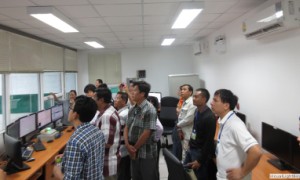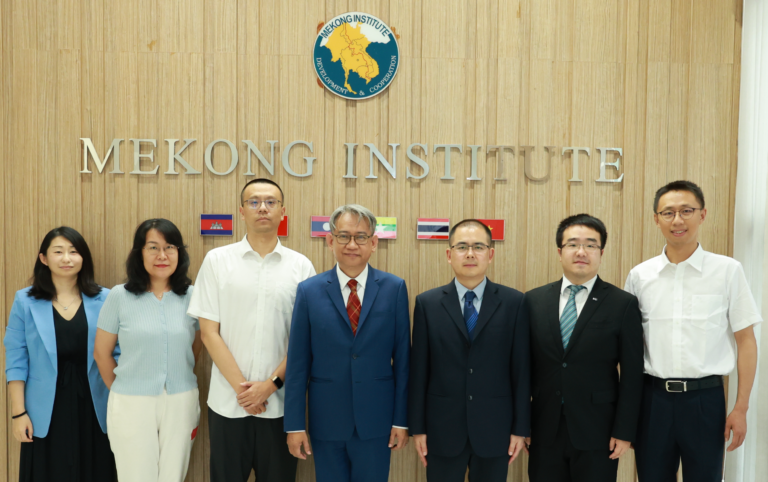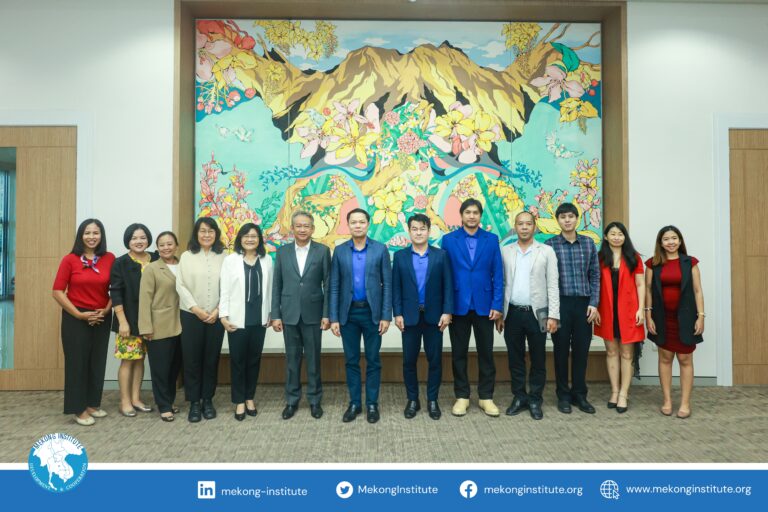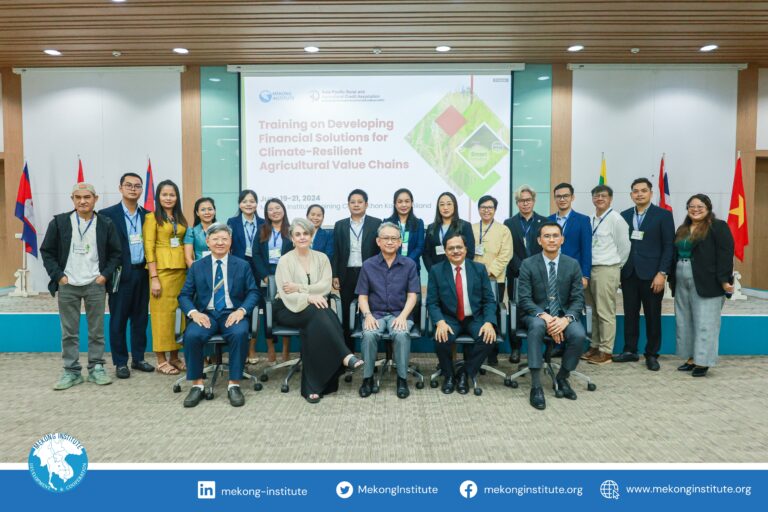Under the funding of New Zealand Aid Programme (NZAP), Mekong Institute (MI) organized a six-day Training cum Structured Learning Visit (SLV) entitled, “Strengthening Coordinated Cross-Border Systems in Agriculture Trade” from July 14-19, 2014 at MI’s residential training center in Khon Kaen, Thailand. This program aims to enhance the participants’ understanding the cross-border trade facilitation framework and improve their knowledge and skills in coordinated cross-border management for greater efficiency in managing agriculture trade.
A visit to the Thai-Lao Border Checkpoint in Mukdahan Province of Thailand and Savannakhet Province of Lao PDR was organized to introduce participants to cross-border procedures, particularly customs procedures, sanitary and phytosanitary (SPS) inspection measures and various requirements in moving agricultural products from one country to another. Seventeen officials from public and private sectors, including provincial authorities, border-check point officials, and representative from private sector from Cambodia, Lao PDR, and Vietnam, participated in this program.
In his welcome speech, Dr. Watcharas Leelawath, MI Director, emphasized on the importance of cross-border trade for regional trade promotion and economic integration, in anticipation of the upcoming ASEAN Economic Community (AEC), which will come into full forces in 2015. It is anticipated that when the products can be sold more, farmers will also earn more. He also mentioned that problems of trade facilitation are serious issues in our region. With full liberalization, the tariffs were eliminated to 0% for 99.9% of products in ASEAN. However, the infrastructure, cross-border trade procedures and Sanitary and Phytosanitary (SPS) standards are still seen as the main barriers to trade promotion and progress towards regional economic integration.
Dr. Watcharas also hoped all participant will apply the knowledge and experiences gained from this program to make change for better trade facilitation systems. He also thanked the New Zealand Aid Programme for providing its support to the program and the Rural Development Team to make this program successful.







